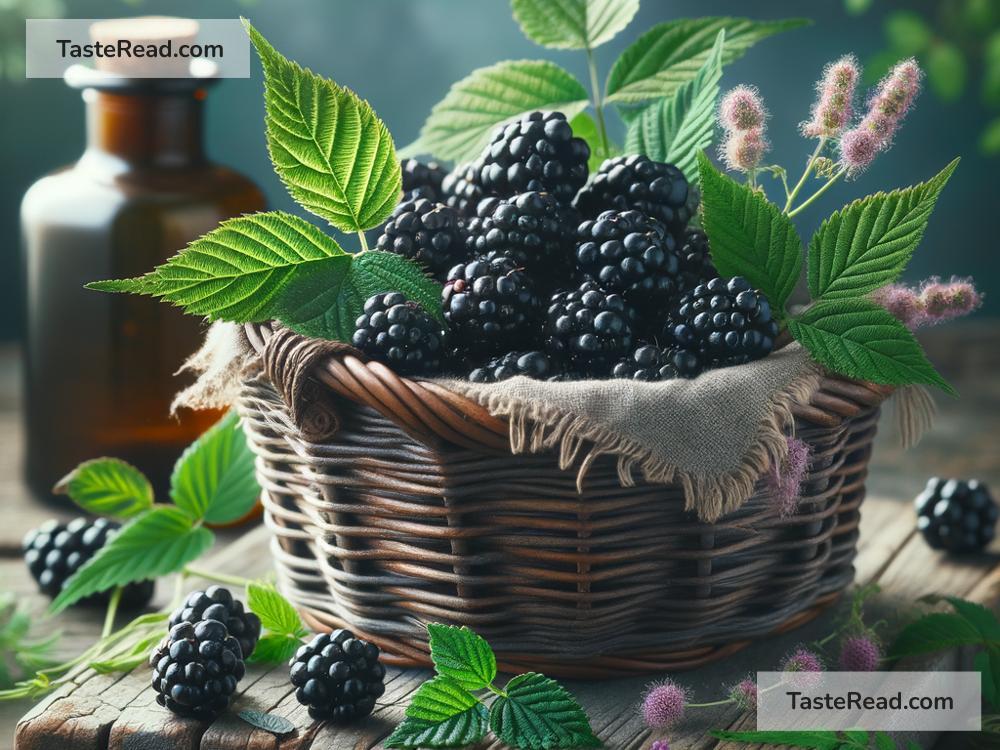Why Blackberries Were Once Used as Medicine
When you think of blackberries, you may picture a sweet and juicy fruit perfect for a snack or dessert. But did you know that blackberries weren’t always seen as just food? Hundreds of years ago, people actually used blackberries as a natural medicine. In the days before modern pharmaceuticals, plants and fruits like blackberries played an important role in keeping people healthy. Let’s take a closer look at why blackberries were once used as medicine and how their natural properties made them special.
The History of Blackberries as Medicine
Blackberries have been around for thousands of years, growing wild in Europe, Asia, and North America. Ancient civilizations—including the Greeks and Romans—were among the first to study plants for their health benefits. They noticed that blackberries provided more than just nourishment; they had certain qualities that could help treat illnesses and wounds.
One of the first recorded uses of blackberries for medicine came from ancient Greek doctors, who were some of the earliest scientists to study natural remedies. These doctors believed that blackberries could help treat infections, stop bleeding, and improve digestion. Later, during the Middle Ages, people in Europe used parts of the blackberry plant—such as the leaves and roots—along with the berries themselves to treat various health problems. Medicine was very different back then, and many remedies were based on trial and error. People observed patterns and learned that blackberries could help with certain conditions.
What Makes Blackberries Medicinal?
So, what’s so special about blackberries? The answer lies in their natural healing properties. Blackberries are packed with nutrients and compounds that give them their medicinal reputation.
-
Rich in Vitamins and Minerals:
Blackberries contain vitamins like vitamin C, vitamin K, and a small amount of vitamin A. Vitamin C is known for improving the immune system and helping the body heal wounds, while vitamin K supports blood clotting, which is essential for stopping bleeding. The minerals found in blackberries—such as manganese—help the body’s cells function properly. -
Antioxidants:
One of blackberries’ standout features is their high amount of antioxidants. Antioxidants are special substances that protect the body from damage caused by harmful molecules called free radicals. Free radicals can lead to inflammation and diseases like cancer and heart problems. Blackberries have an especially powerful antioxidant called anthocyanin, which gives the berries their deep purple or black color. -
Tannins:
Blackberry leaves, roots, and the fruit contain tannins, which are natural compounds that work as astringents. Astringents tighten and dry out tissues in the body. In the past, tannins were used to help reduce swelling, stop bleeding, and heal wounds. If someone had a sore throat or diarrhea, tannins from blackberry leaves could soothe the irritation and help the body recover. -
Fiber:
Blackberries are also packed with fiber. Fiber not only keeps the digestive system healthy but also helps with conditions like constipation. Historically, people may not have had a clear scientific understanding of fiber, but they certainly observed its ability to improve digestion.
Common Uses of Blackberries in Traditional Medicine
Throughout history, blackberries and their plant parts were used in a variety of remedies. Some of the most common uses included:
-
Healing Sore Throats:
People would make teas or gargles from blackberry leaves to relieve throat pain. The tannins acted as a natural astringent, soothing irritation. -
Treating Diarrhea:
Blackberry leaves or root teas were often used to stop diarrhea. The tannins helped dry and tighten the tissues in the digestive system, reducing symptoms. -
Wound Care:
The juice or crushed leaves were applied to cuts, scrapes, or minor burns. The tannins worked to stop bleeding and help the skin recover. Some ancient cultures even believed that blackberries prevented infections in wounds. -
Reducing Inflammation:
Blackberries were used to ease inflammation both internally and externally. For example, people might drink a tea made from blackberry leaves to reduce swelling in the digestive system, or apply blackberry juice to swollen joints.
Modern Science Confirms the Benefits
Today, we don’t rely on blackberries too much for medicine, thanks to the advances in science and pharmacy. However, researchers have studied the fruit and discovered that the ancient remedies weren’t entirely wrong. Scientific studies have shown that the antioxidants in blackberries can help improve heart health and fight cancer. The tannins, vitamins, and minerals are still recognized for their benefits, just like they were in the past.
While blackberries are now more of a delicious treat than a cure-all, they still hold a valuable place in promoting overall health. By eating blackberries as part of a balanced diet, you can enjoy their natural goodness while connecting with the ways our ancestors used them.
Conclusion
Blackberries were once seen as more than a tasty fruit—they were a powerful tool for healing. From helping wounds heal to soothing sore throats and digestive issues, blackberries played an important role in traditional medicine for centuries. Today, while modern medicine has replaced many of those remedies, blackberries are still celebrated for their nutrients, antioxidants, and other health benefits.
The next time you grab a handful of blackberries, take a moment to appreciate their history as a natural medicine. These little berries remind us of how nature has always been a source of healing and wellness. You’re not just eating something delicious—you’re enjoying a fruit that has been valued for centuries!


